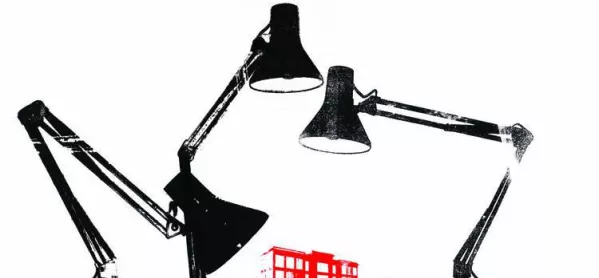- Home
- ‘End performance pay and league tables: Too many teachers believe competition is more valuable than collaboration’
‘End performance pay and league tables: Too many teachers believe competition is more valuable than collaboration’

In 1991, John Major’s government introduced the first ever school league table, a novel idea (at the time) to rank schools in terms of their perceived quality. It followed the Thatcherite push for more competition, everywhere. Educational league tables would be the beginning of a concerted effort by government to increase the quality of schools by playing on fear - and the most powerful one - fear of failure. Cue Ofsted and their own Pontius Pilote style thumbs up and thumbs down over the heads of all comers.
By a combination of policy coercion and careful manipulation, it became normal for schools and teachers to measure their own value against each other, creating unhealthy divisions between them that sometimes came to define their long term relationships as institutions: “We are a good school, but they aren’t”, “We will support them because we are better than them” - and so on.
It won’t take you long to find the legacy of this in our education system today. Banners draped over the front of schools declaring that “this school is an outstanding school” are into the classrooms and corridors too. Teachers pitted against each other with performance related pay, observation grading’s and pupil progress data. Competition has engulfed our education system and become an intoxicating force.
The sad thing is, one of the most significant drivers for school improvement is collaboration, not competition. The two are often uneasy partners. The danger is that teachers, especially less experienced ones, become wrapped up in making comparisons between themselves and their colleagues. They become more concerned with perceptions than realities, their own status rather than their own development. What used to be a gentle competition between teachers based on who had the best classroom displays has gradually evolved into who is getting a pay rise, who is “outstanding” and whose children make the most progress. In some schools, classrooms have become like castles on a hill. Impregnable to threats and guarded by walls of carefully manufactured gloss only for the eyes of those that matter.
All this would be well and good if teachers didn’t intrinsically need each other to become the best version of their teaching selves.
Teachers can collaborate with each other in a variety of ways that can directly and instantly impact their own practice. Peer observation is a powerful but vastly underused tool. Its under employment, in my view, stems from a deep seated fear that a teacher will lose something in the process - pride, self-respect, status. “Will I be judged by my colleague?”, “Will something go wrong in the lesson and will this therefore have a knock on effect on my reputation in the school?”, “Will my colleague steal my best ideas and present them as their own?” or even at its most extreme “Is there a secret plan in place to get rid of me?”.
In writing these, they seem ridiculous, but then in the heat of a school environment that places so much emphasis on “keeping up” and “keeping on”, the sense of losing your place in a perceived hierarchy can have devastating results on both the professional practice of a teacher but also their mental health as they spiral into a cycle of self-doubt accelerated by a paranoid aversion to comparison. Teachers can become slaves to competition.
Language of competition
The solution to this is hard to envisage as underlying competitiveness still seems to lie at the heart of schools. Its sometimes guised in a kind of “saintliness” as Mr Pink pointed out in a recent blog.
“There’s a mental health crisis in our schools. We’re overworked and we’re stressed and we’re crumbling. Many of us are leaving work feeling worthless. This saintliness, exhibited by so many of our colleagues, is not on. It’s an act designed for their own apotheosis at the cost of others’ denigration.”
Phrases that include “they behave for me”, “I am rated outstanding” and “I get in at 7am every single day and haven’t had a day off since 2006” are typical of the need some feel to push their own profile at any given opportunity.
And again, it doesn’t come from a bad place, just one of insecurity brought on by the conditions of work that many find themselves caught up in.
At a leadership level, the phrase “our children” has become synonymous with placing a cohort of young people on a pedestal, there because of undoubtedly superior teaching and learning standards and some kind of morale infinitive that was discovered in that school and patented by it, “We are special because”. Meanwhile, others either desperately try to catch up by performing their own propaganda drive or by sinking away feeling utterly worthless compared to the rest. “Our Children” used to mean “Our Nations Children” but has now been pulled into exclusivity.
So, to eradicate this attitude which is holding back the profession, eradicate performance-related pay (which has been shown to have minimal impact on teacher quality), reduce Ofsted grading’s to just two (pass or fail) and get rid of publicly published league tables.
Replace the language of fear with that of love and the language of competition with the language of collaboration.
Thomas Rogers is a teacher who runs rogershistory.com and tweets at @RogersHistory
For more columns by Tom, view his back catalogue.
Want to keep up with the latest education news and opinion? Follow TES on Twitter and like TES on Facebook
Keep reading for just £1 per month
You've reached your limit of free articles this month. Subscribe for £1 per month for three months and get:
- Unlimited access to all Tes magazine content
- Exclusive subscriber-only stories
- Award-winning email newsletters



